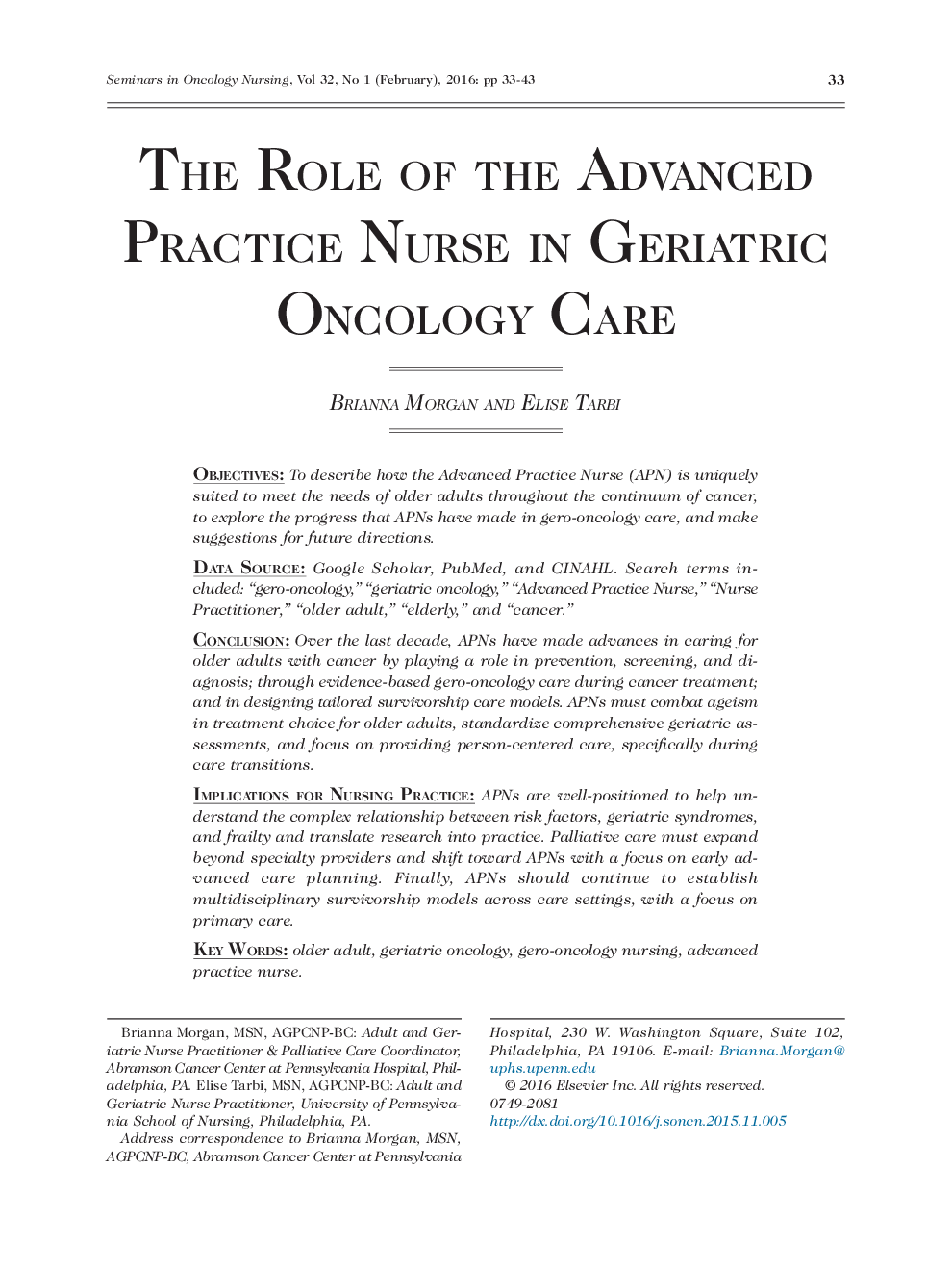| Article ID | Journal | Published Year | Pages | File Type |
|---|---|---|---|---|
| 2676437 | Seminars in Oncology Nursing | 2016 | 11 Pages |
ObjectivesTo describe how the Advanced Practice Nurse (APN) is uniquely suited to meet the needs of older adults throughout the continuum of cancer, to explore the progress that APNs have made in gero-oncology care, and make suggestions for future directions.Data SourceGoogle Scholar, PubMed, and CINAHL. Search terms included: “gero-oncology,” “geriatric oncology,” “Advanced Practice Nurse,” “Nurse Practitioner,” “older adult,” “elderly,” and “cancer.”ConclusionOver the last decade, APNs have made advances in caring for older adults with cancer by playing a role in prevention, screening, and diagnosis; through evidence-based gero-oncology care during cancer treatment; and in designing tailored survivorship care models. APNs must combat ageism in treatment choice for older adults, standardize comprehensive geriatric assessments, and focus on providing person-centered care, specifically during care transitions.Implications for Nursing PracticeAPNs are well-positioned to help understand the complex relationship between risk factors, geriatric syndromes, and frailty and translate research into practice. Palliative care must expand beyond specialty providers and shift toward APNs with a focus on early advanced care planning. Finally, APNs should continue to establish multidisciplinary survivorship models across care settings, with a focus on primary care.
